Plastic surgery patients seeking ‘filtered selfies’ look
So-called Snapchat dysmorphia on the rise, new research finds

Unrealistic expectations triggered by airbrushed selfies is being blamed for an alarming new trend of people seeking plastic surgery in ordered to resemble their filtered selves in real life.
According to a new study, images filtered on smartphone apps are having a “disastrous impact on people’s self-esteem” - an effect that has been dubbed “Snapchat dysmorphia”.
In a paper published in journal JAMA Facial Plastic Surgery, researchers from Boston Medical Center argue that photo-editing technology on apps and social media sites is “changing perceptions of beauty around the world”.
Subscribe to The Week
Escape your echo chamber. Get the facts behind the news, plus analysis from multiple perspectives.

Sign up for The Week's Free Newsletters
From our morning news briefing to a weekly Good News Newsletter, get the best of The Week delivered directly to your inbox.
From our morning news briefing to a weekly Good News Newsletter, get the best of The Week delivered directly to your inbox.
“This is an alarming trend because those filtered selfies often present an unattainable look and are blurring the line of reality and fantasy for these patients,” the report adds.
“The pervasiveness of these filtered images can take a toll on one’s self-esteem, make one feel inadequate for not looking a certain way in the real world.”
As The Guardian notes, “airbrushed, unrealistic representations of women in fashion magazines have been blamed for the increasing incidences of eating disorders” in women and teenage girls.
And while airbrushing technology was once only available to professional photographers or artists, apps such as Line Camera and Facetune now “give users easy tools to make their faces appear thinner, more symmetrical and blemish-free, before posting them to Facebook”, the newspaper adds.
In a 2015 survey, although more than two-thirds of females said it is immoral for magazines to airbrush photos, 57% admitted to regularly editing their own social media pictures to enhance their appearance.
“It can be argued that these apps are making us lose touch with reality because we expect to look perfectly primped and filtered in real life as well. Filtered selfies especially can have harmful effects on adolescents or those with BDD [body dysmorphic disorder] because these groups may more severely internalise this beauty standard,” the report warns.
Create an account with the same email registered to your subscription to unlock access.
Sign up for Today's Best Articles in your inbox
A free daily email with the biggest news stories of the day – and the best features from TheWeek.com
-
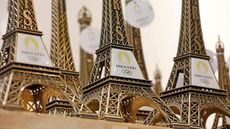 Olympics 2024: is Paris ready to party?
Olympics 2024: is Paris ready to party?Talking Point Build-up to this summer's Games 'marred' by rows over national identity, security and pollution
By The Week UK Published
-
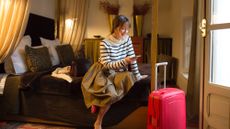 Solo travel: the 'ultimate indulgence in 2024'
Solo travel: the 'ultimate indulgence in 2024'The Week Recommends Why more of us are choosing to go on holiday on our own
By Adrienne Wyper, The Week UK Published
-
 'Stormy Monday for Don'
'Stormy Monday for Don'Today's Newspapers A roundup of the headlines from the US front pages
By The Week Staff Published
-
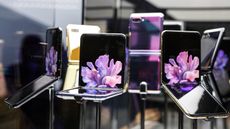 Five of the best flip smartphones
Five of the best flip smartphonesThe Week Recommends The most compact and versatile flip phones available, with prices ranging from £819 to £1,649
By The Week Staff Published
-
 Sport on TV guide: Christmas 2022 and New Year listings
Sport on TV guide: Christmas 2022 and New Year listingsSpeed Read Enjoy a feast of sporting action with football, darts, rugby union, racing, NFL and NBA
By Mike Starling Published
-
 House of the Dragon: what to expect from the Game of Thrones prequel
House of the Dragon: what to expect from the Game of Thrones prequelSpeed Read Ten-part series, set 200 years before GoT, will show the incestuous decline of Targaryen
By Chas Newkey-Burden Published
-
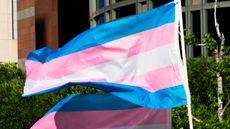 One in 20 young Americans identify as trans or non-binary
One in 20 young Americans identify as trans or non-binarySpeed Read New research suggests that 44% of US adults know someone who is transgender
By The Week Staff Published
-
 The Turner Prize 2022: a ‘vintage’ shortlist?
The Turner Prize 2022: a ‘vintage’ shortlist?Speed Read All four artists look towards ‘growth, revival and reinvention’ in their work
By The Week Staff Last updated
-
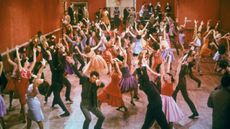 What’s on TV this Christmas? The best holiday television
What’s on TV this Christmas? The best holiday televisionSpeed Read From films and documentaries to musicals for all the family
By The Week Staff Published
-
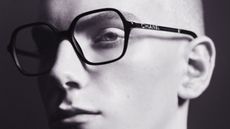 Coco vision: up close to Chanel opticals
Coco vision: up close to Chanel opticalsSpeed Read Parisian luxury house adds opticals to digital offering
By The Week Staff Published
-
 Abba returns: how the Swedish supergroup and their ‘Abba-tars’ are taking a chance on a reunion
Abba returns: how the Swedish supergroup and their ‘Abba-tars’ are taking a chance on a reunionSpeed Read From next May, digital avatars of the foursome will be performing concerts in east London
By The Week Staff Published